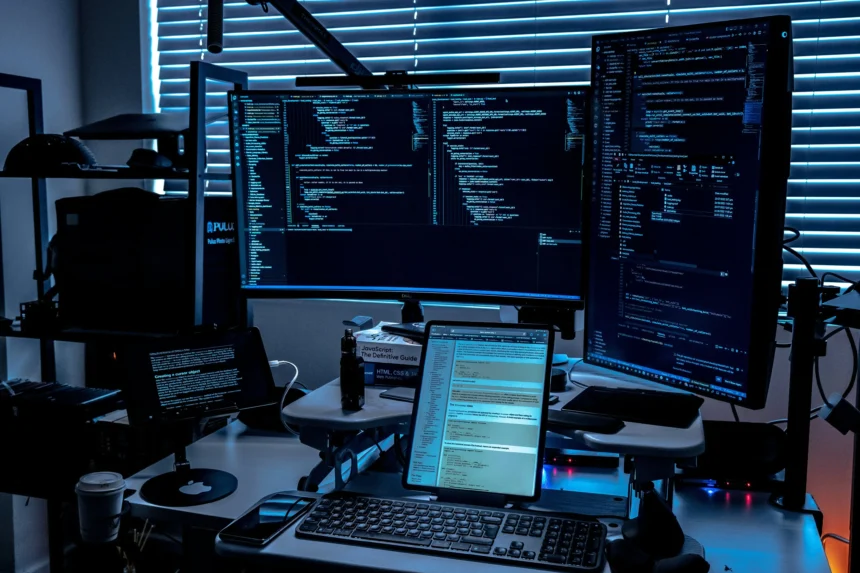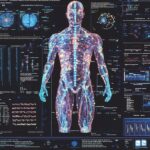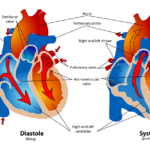Data science is the process of collecting, analyzing, and using data to find useful insights and make better decisions. It combines statistics, programming, and domain knowledge to solve real-world problems.
Data science is important because it helps businesses grow, improves services, and supports smarter decision-making. From predicting trends to improving healthcare, data science plays a key role in shaping the future with accurate, data-driven solutions.
Which is better, CS or DS?
Choosing between Computer Science (CS) and Data Science (DS) depends on your career goals and interests. Computer Science focuses on programming, software development, and system design.
Data Science deals with data analysis, machine learning, and finding patterns in data. If you enjoy building technology, CS is better.
If you like working with data to solve problems, DS is better. Both fields offer strong job opportunities and have a growing demand in today’s tech world.
What Are the Advantages and Disadvantages of Data Science?
A Data Science degree has both advantages and disadvantages, depending on what you want from your career. It teaches you how to collect, clean, and analyze data, helping you make smart decisions.
Data science powers the AI money generator by analyzing data to create smart systems that boost income and drive better financial decisions.
This skill is useful in many industries like healthcare, finance, and technology. However, it also comes with challenges, such as high competition and the need to always keep learning new tools and techniques.
Here is a simple table showing the advantages and disadvantages of a Data Science degree:
| Advantages | Disadvantages |
| High demand in many industries | It can be expensive to study |
| Good salary and career growth | Competitive job market |
| Builds strong skills in data and coding | Requires strong math and programming skills |
| Opportunities to work on real problems | Tools and technology change quickly |
| Can work in different fields like health, finance, and IT | May need further learning or certifications |
Data Science Degree?
Pursuing a Data Science degree requires meeting specific qualifications, choosing the right institution, understanding the associated costs, and finding suitable online programs. Here’s a detailed overview:
Qualifications Needed for a Data Science Degree:
- Educational Background: A strong foundation in mathematics, statistics, and computer science is essential. For undergraduate programs, completion of high school with courses in these subjects is typically required. For master’s programs, a bachelor’s degree in a related field is often necessary.
- Prerequisite Courses: Many programs expect prior coursework in calculus, linear algebra, probability, and programming languages. For instance, New York University prefers applicants with exposure to machine learning and computational statistics.
- Standardized Tests: Some institutions may require GRE scores, while others have waived this requirement. International students might need to demonstrate English proficiency through tests like TOEFL or IELTS.
Where Can You Learn Coding for Data Science?
If you want to learn coding, many online resources can help you. These platforms and communities make it easy to learn step by step. They offer lessons, projects, and support to help you become a better coder.
Below are some of the most helpful places to start your coding journey:
Dedicated Coding Education Websites
These websites are made especially for teaching coding. They offer structured lessons, real examples, and practice projects. They are perfect for beginners who want to learn from scratch.
W3Schools
W3Schools is a simple and beginner-friendly website. It teaches HTML, CSS, JavaScript, and more. You can practice code directly in your browser and learn at your own pace.
Codecademy
Codecademy offers interactive coding lessons for beginners and advanced learners. You can learn Python, JavaScript, SQL, and many other languages with real-time feedback as you code.
Bootcamps
Coding bootcamps are short, intense training programs. They focus on practical skills and job-ready projects. Bootcamps are great if you want to learn coding quickly and get a job in tech.
Online Courses
Many platforms like Coursera, Udemy, and edX offer full coding courses. These courses include video lessons, quizzes, and certificates. You can learn everything from web development to data science.
Online Communities
Online coding communities like Stack Overflow, Reddit, and GitHub help ask questions, share code, and learning from others. You can join discussions and get help from experienced coders.
Kaggle
Kaggle is a platform for data science and machine learning. It offers free datasets, coding competitions, and notebooks. It’s a great place to practice data science and learn from real projects.
Coding Challenges and Hackathons
Websites like HackerRank, LeetCode, and Codeforces provide coding challenges to test your skills. Hackathons are events where you build projects in a short time with a team. Both help improve your coding and problem-solving abilities.
Tips for Non-Programmers Learning Data Science
Learning data science as a non-programmer may appear hard at first, but with the right steps, it becomes easier and more enjoyable. You don’t need to be an expert coder to start your journey. By using simple tools, understanding business needs, and learning basic programming, you can build a strong foundation in data science. Below are some helpful tips to guide you:
Learn to Use GUI-based Tools
If you’re new to coding, start with GUI-based (Graphical User Interface) tools. These tools let you work with data using buttons and menus instead of code.
Tools like Excel, Power BI, and Tableau help you analyze and visualize data in a simple way. They are easy to use and are a great way to begin your data science journey without heavy programming.
Become a Great Storyteller
Data science is not just about numbers; it’s about telling stories with data. Learn how to explain what the data means in simple words. Use charts, graphs, and clear language to share your insights. Good storytelling helps others understand your findings and makes your work more valuable.
Build Your Credibility With Business Acumen
Understanding how businesses work gives you an edge in data science. Learn how companies use data to solve problems, improve services, or make profits. This business knowledge helps you ask the right questions and find useful answers in the data. It also makes your work more meaningful and trustworthy.
Get a Foundational Knowledge in Programming
You don’t need to be a coding expert, but learning the basics of programming will help a lot. Start with simple languages like Python. Learn how to write small scripts, clean data, and make charts. Once you know the basics, you can do more complex tasks and understand how data tools work behind the scenes.
Cost Considerations:
- Tuition Fees: Costs vary widely among institutions. For example, the University of Illinois Urbana-Champaign’s online master’s program costs approximately $24,128 in total.
- Additional Expenses: Consider expenses for course materials, software, and potential on-campus residencies.
- Financial Aid: Many universities offer scholarships or financial aid; it’s advisable to check each institution’s offerings.
Data Science Expert Salary
The salary of a data science expert depends on experience, job role, and location. Data science is one of the highest-paying fields in today’s job market. Companies are willing to pay more for skilled professionals who can analyze data and help them make smart business decisions.
As your experience grows, your salary also increases. Entry-level jobs start with good pay, and senior roles offer even better packages.
Here is a simple table showing average salaries for data science experts:
| Experience Level | Job Title | Average Salary (Per Year) |
| Entry-Level (0–2 years) | Junior Data Scientist | $70,000 – $90,000 |
| Mid-Level (2–5 years) | Data Scientist | $100,000 – $120,000 |
| Senior-Level (5+ years) | Senior Data Scientist | $130,000 – $160,000 |
| Specialized Role | Machine Learning Engineer | $120,000 – $150,000 |
| Leadership Role | Data Science Manager | $140,000 – $180,000 |
These numbers can change based on country, company size, and skills like Python, SQL, and machine learning. Overall, data science offers a strong career with excellent salary potential.
Is data science like coding?
Data science is not just like coding, but coding is an important part of data science. Simply, data science means collecting, cleaning, analyzing, and understanding data to find useful information.
To do this, data scientists use coding languages like Python, R, or SQL. So, while data science includes coding, it also involves thinking, solving problems, using math, and making smart decisions based on data.
Essential Skills for Coding

To become good at coding, you need to learn and practice some essential skills. These skills help you write clean code, solve problems, and build useful software.
The first important skill is logical thinking, which helps you break big problems into smaller steps. The second is basic math, which supports calculations and algorithms. You also need to know programming languages like Python, Java, or C++.
Another key skill is debugging, which means finding and fixing errors in your code. Good communication is also important, especially when working with a team.
Lastly, having patience and focus helps you stay calm and think clearly when your code doesn’t work right away. Learning these skills step by step will make your coding journey smooth and successful.
Key Differences Between Coding and Data Science
Coding and data science are two popular fields in the tech world. They are different but often work together. Coding means writing step-by-step instructions for computers to follow.
Data science means working with data to find answers and make better decisions. Coding helps build software, while data science helps understand data. Both require problem-solving, but their goals, tools, and learning paths are different.
Here is a simple table showing the key differences between coding and data science:
| Aspect | Coding | Data Science |
| Primary Focus | Creating software, websites, or applications | Analyzing and understanding data to gain insights |
| Core Skills | Programming, logic building, and debugging | Statistics, data analysis, machine learning, coding |
| Tools | Python, Java, C++, JavaScript, IDEs | Python, R, SQL, Excel, Tableau, Jupyter Notebook |
| Goal | Build systems or programs that perform tasks | Use data to support decisions, make predictions, or solve problems |
| Learning Curve | Starts simple, becomes complex with advanced topics | Requires strong math and logic; steep for beginners |
| Output | Functional applications, websites, software programs | Data reports, visualizations, predictions, and insights |
In simple words, coding builds digital tools, and data science uses data to answer important questions. If you like building things, coding is for you. If you enjoy working with numbers and patterns, data science is a better match.
Popular Data Science Programming Languages
To work in data science, you need to know some popular programming languages. These languages help you collect, clean, analyze, and visualize data.
Each language has its strengths and is used for different tasks in data science. Learning these languages will make your work easier and help you solve real-world problems using data.
Here are some popular data science programming languages with simple descriptions:
Python
Python is the most popular language in data science. It is easy to learn and has many useful libraries like Pandas, NumPy, and Matplotlib. Python is great for data analysis, machine learning, and data visualization.
R
R is designed for statistics and data analysis. It is widely used by researchers and data scientists to create reports, graphs, and models. R has powerful tools for working with numbers and data sets.
SQL
SQL (Structured Query Language) is used to work with databases. It helps you find, update, or organize data stored in tables. SQL is important because most data is stored in databases.
Java
Java is a strong and fast language. It is used in big data tools like Hadoop and Spark. Java is helpful when working with large-scale data systems and enterprise-level projects.
Scala
Scala is often used with Apache Spark for big data processing. It is a powerful language that supports both object-oriented and functional programming.
Julia
Julia is a newer language made for high-performance computing. It is fast and good for handling large data sets and complex math tasks in data science.
In simple words, Python and R are the best choices for beginners, while SQL is a must for working with data in databases. Other languages like Java, Scala, and Julia are useful for advanced or large-scale data projects.
Best Institutes to Learn Data Science:
Several esteemed institutions offer Data Science degrees. Here are some top programs:
| Institute | Program | Cost per Credit | Total Credits | Online Admission Link |
| Harvard Extension School | Master’s in Data Science | Not specified | Not specified | Harvard Data Science Program |
| Johns Hopkins University | Online Master’s in Data Science | Not specified | Not specified | Johns Hopkins Data Science Program |
| University of Illinois Urbana-Champaign | Online Master’s in Data Science | $754 | 32 | UIUC Data Science Program |
| Indiana University | Online Bachelor’s in Data Science | $798 | 120 | Indiana University Data Science Program |
| IIT Madras | Online B.Sc. in Data Science and Applications | Varies | Varies | IIT Madras Data Science Program |
Conclusion
In conclusion, data science is a powerful field that helps people and businesses make better decisions using data. It combines coding, statistics, and business knowledge to find useful patterns and insights.
If you are a beginner or a pro, learning data science step by step can open many job opportunities. With the right tools, skills, and practice, anyone can start a successful journey in data science today.
FAQs About Data Science
1. What is data science?
Data science is the process of collecting, analyzing, and interpreting data to find useful information. It helps people and companies make smart decisions based on facts, not just guesses.
2. Do I need to know coding to learn data science?
Basic coding skills are helpful in data science, especially in languages like Python or R. But beginners can start with simple tools and learn coding step by step along the way.
3. What are the main tools used in data science?
Common tools include Python, R, SQL, Excel, Tableau, and Jupyter Notebook. These help with data cleaning, analysis, and creating charts or models.
4. Is data science hard to learn?
Data science can seem hard at first, but with regular practice and the right learning path, anyone can learn it. Starting with simple concepts and building slowly makes it easier.
5. What jobs can I get with data science skills?
You can become a data scientist, data analyst, machine learning engineer, business analyst, or data engineer. These roles are in high demand across many industries.
6. Can I learn data science online?
Yes, there are many online platforms like Coursera, Udemy, edX, and Codecademy where you can learn data science at your own pace with video lessons and projects.
7. How long does it take to become a data scientist?
It depends on your background and how much time you spend learning. On average, it may take 6 months to 1 year to learn the basics and build projects that can help you get a job.
8. Why is data science important today?
Data science is important because it helps businesses understand customer behavior, improve services, and make better decisions using real data instead of guesses.







